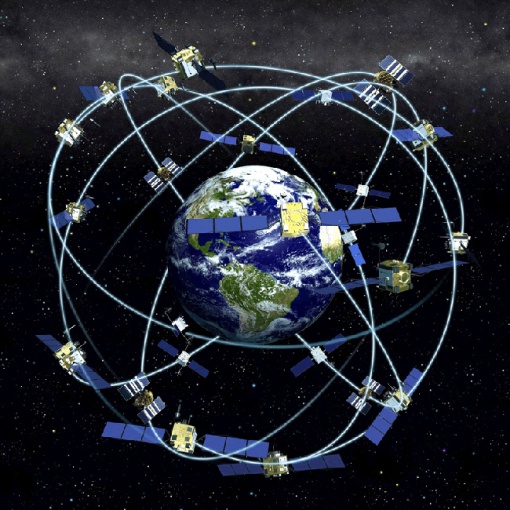How do we know what we know, and does it matter where we learned it?
The movie Gravity just premiered to wild acclaim, along with a slew of articles about the science shown in the movie (in the LA Times, NY Times, etc. etc.), and a spate of tweets from Neil DeGrasse Tyson good-humored-ly raking it over the coals for inaccuracies. This media narrative is pretty common when new movies come out that have any clear basis in real-world science or history; there were a bunch about the accuracy of Lincoln when it appeared last year, too.
Why the apprehension over what’s accurate and what’s not in these things? They’re just movies. The fact that we’re concerned about what is reality in these movies shows an admission that we know that many people get information about the world from them (or a fear that they do, at least).

Neil wants you to know that in real life, satellites orbit west to east, not east to west like in the movie. Though from this picture, stuff seems to just sort of whiz around all over the place, right?
There’s a lot of debate about the effects of media on people’s behavior – do violent movies and videogames make people more prone to acts of violence? (studies actually do show a consistent correlation – but they do not show a consistent causation). That issue is far beyond the scope of this blog. But what is incontrovertible is that while we may not know how much media influences behavior, we do know that it influences knowledge. A lot.
In anthropological terms, this kind of information is called declarative knowledge (i.e. “Annapolis is the capital of Maryland” “Mars is red”). Some of the things we think we know, of course, we’ve really learned from movies and TV, and we’ve been misinformed: ask what a plane sounds like when it lands, and most people will probably tell you about the wheels screeching as they hit the tarmac, just like they’ve seen onscreen a million times – but that sound was created by a foley artist a couple of decades ago, from the sound of his car’s tires; it’s not really a plane at all. Almost everybody knows a few common conceptions shown in the mass media that they know aren’t true, usually something from their realm of expertise (for example, Dr. Tyson’s tweet about Gravity; or if you know one, go ask a cop about the tv-bred misunderstandings people have about their Miranda rights).
But while its easy to rail against the many misconceptions that arise from media watching, we shouldn’t ignore the positive ones, either – if you asked me to describe what the African savannah looks like, I could tell you. But I’ve never been there, how do I know? ‘Cause I saw it on National Geographic documentary. And actually, I probably DO have a pretty good idea of what the African savannah looks like, not just because of that long ago documentary from from every time I’ve seen it portrayed in movies or on TV since.
This declarative knowledge that we get from TV and movies isn’t just from nonfiction or documentary shows; we probably have in fact seen many, many places, people, and things that we would not otherwise have had the opportunity to become acquainted with if not for seeing them in movies and on TV. How many more people have seen the short movie-in-a-movie about DNA in Jurassic Park than ever took an actual college genetics class? On the balance, I’d say all the things I’ve learned about the world and what is in it from TV and movies that are true probably solidly outweigh the things I have learned that are false. Now, that’s ignoring things that are supposed to be false, like the fictional stories, etc. But you can learn what Berlin looks like from watching The Bourne Supremacy without actually thinking that amnesic super-assassins are roaming the streets of Europe.
What’s interesting is that the declarative knowledge people have – both directly factual knowledge and about beliefs about how the world works – can have real-world effects. There are a number of research studies show that peoples’ knowledge of how forensic and criminal science works has been so skewed by watching CSI and other shows that it may actually be affecting the pursuit of justice; this is called “the CSI effect” (really – go look it up).
The overall question that we want to ask about this is “how do we know what we know?” And then – does it matter where you learned it? Is it better, or worse (or neither), if you learned what Berlin looks like from an action movie, a documentary, or a book? Think about all of the things you know, and then consider where the knowledge came from, and how much of it may have originated with films or TV. When we think of what we see on screen, we rarely think of the buildup of declarative knowledge we generate from the media we consume – and hey, when you’re binge watching Breaking Bad, you may be picking up more than you think.

Thank you so much for your knowledge! a pleasure te read! have a nice day sir!